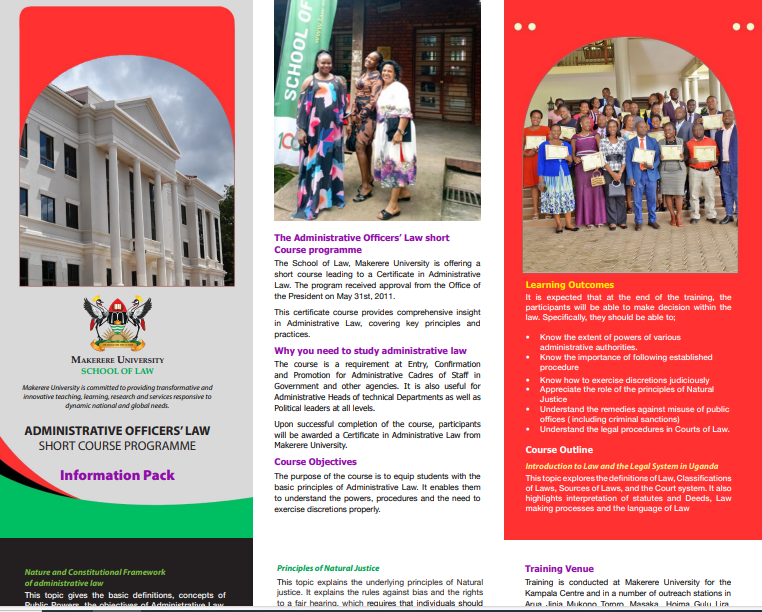Law Students Undergo HIV/AIDS Sensitization
Students in the School of Law Makerere University and Uganda Christian University Mukono benefited from a training on HIV related legal services organized by the International Development Law Association (IDLO) with the objective of increasing students understanding of the role of the law in the national and global HIV response. The students were taken through a number of topical issues that included the situation of HIV/AIDS in Uganda facilitated by Dr. Daniel Byamukama, the officer in charge of Prevention at the Uganda Aids Commission. There were also interactive panel discussions in relation to discrimination drawing experiences from persons who were victims of discrimination that included young people living with HIV/AIDS, commercial sex workers and the drug users. Dr. KabumbaBusingye from the School of Law presented a topic on the law relating to HIV in Uganda, the ethical issues in line with HIV and other legal issues affecting persons living with HIV.

This according to the participating students was an eye opener since they ordinarily do not take particular interest in the subject. In the discussions that were conducted, participants debated on the concern as to whether criminalization of deliberate infection of HIV is useful for the control of the spread of HIV. According to the students, the workshop was very informative and helped them appreciate the challenges at hand in view of HIV/AIDS. “ I learnt a lot in terms of living in a community where HIV is rampant, the many issues of stigma and discrimination happening against persons living with HIV that need to change and the need for the legal fraternity to come out and take a stand against stigma and discrimination for people living with HIV’ said one of the participants. It was explained that the HIV/AIDs Control Act is one of the legal tools that can be used to curb the injustices against persons living with HIV but more has to be done such as putting a provision in the Constitution in regard to fair treatment for such persons. It was recommended that more concerned sectors of the community be sensitized to address the stereotyping and the negative attitudes with which the persons living with HIV are handled.



